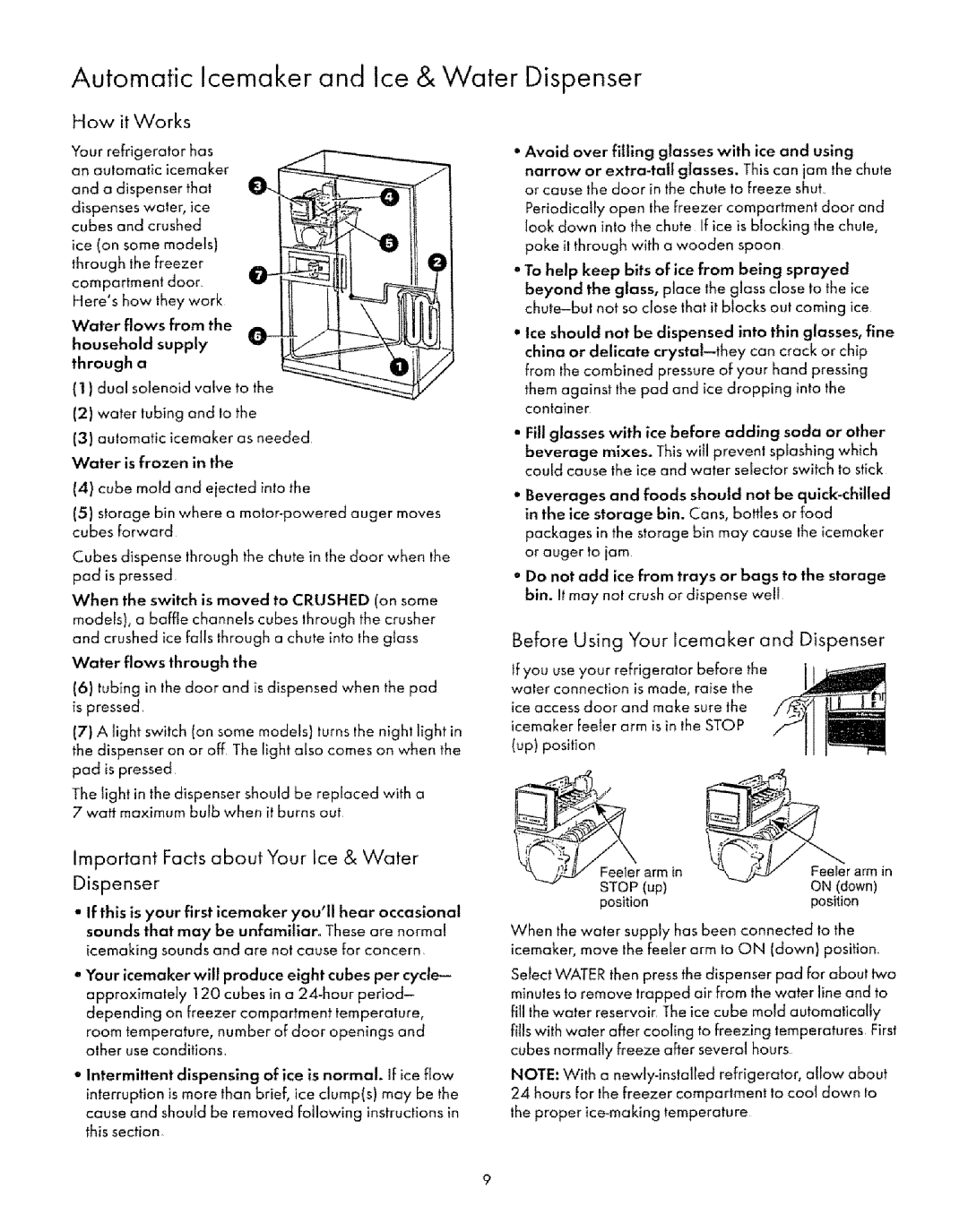
Automatic Icemaker and Ice & Water Dispenser
How it Works
Your refrigerator has an automatic icemaker
and a dispenser that
dispenses water, ice cubes and crushed
ice (on some models) through the freezer compartment door Here'show they work Water flows from the household supply through a
(1)dual solenoid valve to the
(2)water tubing and to the
(3)automatic icemaker as needed
Water is frozen in the
(4)cube mold and eiected into the
(5)storage bin where a
Cubes dispense through the chute in the door when the pad is pressed
When the switch is moved to CRUSHED (on some models), a baffle channels cubes through the crusher and crushed ice falls through a chute into the glass
Water flows through the
(6)tubing in the door and is dispensed when the pad is pressed.
(7)A light switch (on some models) turns the night light in the dispenser on or off The light also comes on when the pad is pressed
The light in the dispenser should be replaced with a 7 watt maximum bulb when it burns out
important Facts about Your ice & Water
Dispenser
•If this is your first icemaker you'll hear occasional sounds that may be unfamiliar° These are normal icemaking sounds and are not cause for concern
•Your icemaker will produce eight cubes per cycle- approximately 120 cubes in a
room temperature, number of door openings and other use conditions,
•Intermittent dispensing of ice is normal. If ice flow interruption is more than brief, ice clump(s) may be the cause and should be removed following instructions in this section
•Avoid over filling glasses with ice and using
narrow or
Periodically open the Freezer compartment door and look down into the chute If ice is blocking the chule, poke it through with a wooden spoon
°To help keep bits of ice from being sprayed beyond the gloss, place the glass close to the ice
•Ice should not be dispensed into thin glasses, fine china or delicate
•Fill glasses with ice before adding soda or other
beverage mixes. Thiswill prevent splashing which could cause the ice and water selector switch to stick
•Beverages and foods should not be
°Do not add ice from trays or bags to the storage bin. It may not crush or dispense well
Before Using Your Icemaker and Dispenser
If you use your refrigerator before the water connection is made, raise the
ice access door and make sure the icemaker Jeerer arm is in the STOP (up) position
_'" | arm in | r arm in |
| STOP (up) | ON (down) |
| position | position |
When the water supply has been connected to the icemaker, move the feeler arm to ON (down) position,
Select WATER then press the dispenser pad for about two minutes to remove trapped air from the water line and to fill the water reservoir The ice cube mold automatically fills with water after cooling to freezing temperatures First cubes normally freeze after several hours
NOTE: With a
